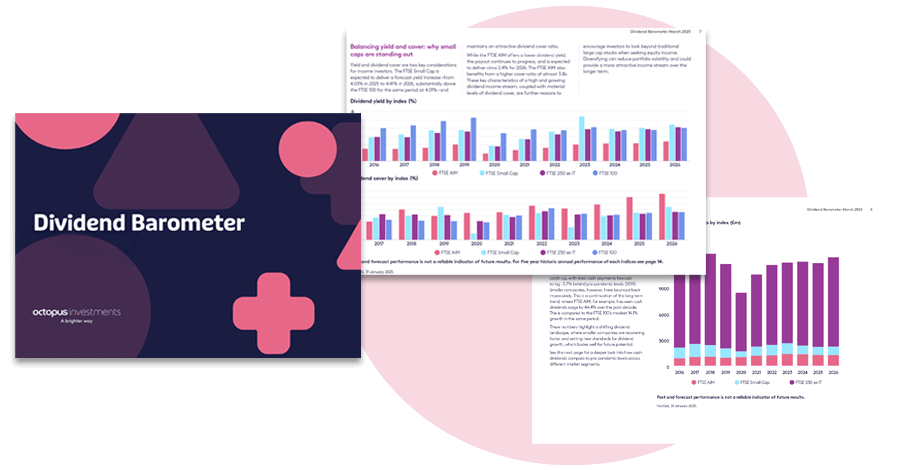Octopus spoke to Mark Greenwood, Director of Compliance Services at SimplyBiz, to discuss recommending inheritance tax-efficient investments.
Whether you’re new or familiar with the world of investments that qualify for Business Relief (BR), what are some practical steps you can take to help you write this kind of business?
We spoke to Mark Greenwood, Director of Compliance Services at The SimplyBiz Group, the largest provider of compliance support for financial services in the UK.
We asked him for his top tips on compliance and suitability when approaching this area of advice, and the impact of Consumer Duty on writing inheritance tax business.
“I would hope the days of a compliance team being perceived as a business prevention team should hopefully be over. It’s about working with them throughout a Business Relief case.”
So what is Business Relief?
Business Relief (previously called Business Property Relief or BPR) qualifying investments encourage individuals to invest in unlisted trading companies or those listed on the Alternative Investment Market (AIM). These are higher-risk investments than main-market equities. To compensate for some of that risk, the estate of an investor can claim 100% relief from inheritance tax on the value of the investment, as long as shares had been held for at least two years when the investor died. As this is simply an investment, unlike other forms of estate planning there is no need to give away wealth while alive. The qualifying shares are held by the investor until they die meaning they retain control of their wealth, and should they need to sell some or all of their investment to access their capital, they can do so, subject to liquidity.
Making a qualifying investment can be effective more quickly than traditional estate planning options, such as lifetime gifts, which can take seven years to reduce the value of an estate. Being able to make investments that support trading businesses and provide relief from inheritance tax has made BR-qualifying investments a compelling option for many clients planning their estate.
Despite the growing popularity of BR-qualifying investments, it can be perceived as a daunting area to get to grips with. So here are some helpful pointers from Mark.
Consumer Duty is about having a well-informed client
“The key message from the FCA’s policy statement and finalised guidance on Consumer Duty, is making sure consumers are equipped with the right information to make effective, timely, and properly informed decisions about their products and services,” explains Mark.
“Informed decision-making should permeate throughout consumer duty.
If you look at a product like a BR investment, obviously that has inherent risk. But Consumer Duty says that where a firm reasonably believes a retail customer understands and accepts those risks, an adviser is complying with Consumer Duty.”
“It’s all about advisers checking that the client understands their advice and they have evidence that the client is aware of any risk and potential disadvantages of their recommendation.”
Adopt a goal-based risk approach
Approaching risk can be particularly challenging when a client has a relatively low appetite for risk overall but is perhaps suitable for BR. Yet advisers should not necessarily be deterred.
It’s worth recapping the risks here.
The value of a BR-qualifying investment, and any income from it, can fall as well as rise. Investors may not get back the full amount they invest. Tax treatment depends on individual circumstances and tax rules could change in the future. Tax relief depends on portfolio companies maintaining their qualifying status.
The shares of unquoted companies could fall or rise in value more than shares listed on the main market of the London Stock Exchange. They may also be harder to sell.
“From a suitability perspective to me, it’s all around goal-based planning. Different pots of money have different priorities.”
When recommending a Business Relief investment, Mark says there are two main factors to consider.
“What proportion of the client’s assets are being recommended to go into these types of investment solutions? And then there’s the goal-based risk approach – a client with different pots of money at different speeds from a risk perspective.”
Creating a strong client file
“Sometimes it’s not clear in the client file that the client has an understanding of the risk,” says Mark.
“So to me, it’s looking to see if the adviser has addressed attitude to risk, capacity for loss, and how that impacts the recommendation within the case. It’s that extra level of documentation, making it clear that for this particular pot of money, for these reasons, a client is going to be taking more risk than the rest of their portfolio.”
Mark recommends including direct notes and quotes from the client within the file, which increases the plausibility and believability of the case.
“What I sometimes find is that the adviser will write the case and then send it for a review after the advice has been given.”
But Mark believes it’s key to work with the compliance team from the beginning of the case to ensure the best outcome.
“I would hope the days of a compliance team being perceived as a business prevention team should hopefully be over. It’s about working with them throughout a Business Relief case.”
Learn more about recommending Business Relief
Watch our ‘Writing Business Relief cases’ webinar for more practical support and information on how to recommend investments that qualify for Business Relief (previously called Business Property Relief or BPR).
We also have an in-depth webinar on the Octopus Inheritance Tax Service. Click here to watch our ‘Spotlight on the Octopus Inheritance Tax Service’ webinar.










